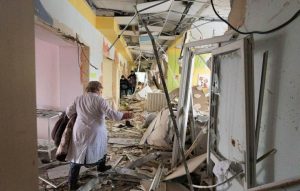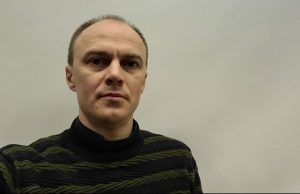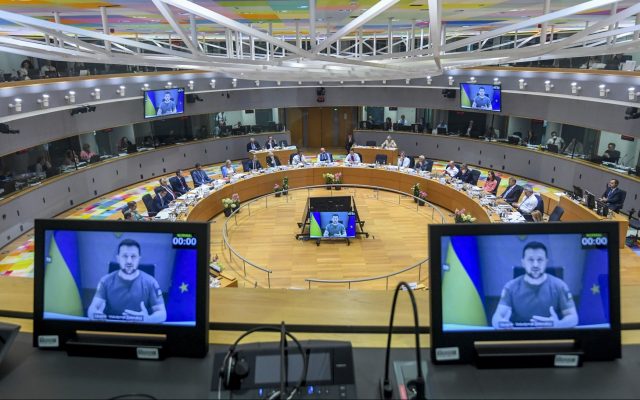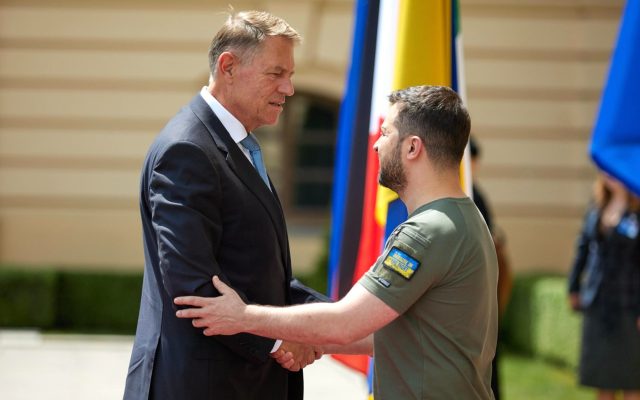
EXCLUSIVE The deputy mayor of Mariupol, Ukraine’s ruined city. „We live like rats, in basements, in darkness, we have no food, electricity or water. We are in the Middle Ages, and the Russians won’t let us out”
Sergiy Orlov, deputy mayor of the Ukrainian city of Mariupol, which was destroyed by shelling, told G4media.ro about the situation of those left behind. Out of a population of more than 550,000 at the start of the war, the authorities say Mariupol has about 175,000 people left. The people who didn’t get to leave can’t because „those humanitarian corridors are a joke,” according to Orlov. „The Russians are shooting at civilians. There is no way out. Very hard to leave, if you can,” Orlov says.
Urmărește cele mai noi producții video G4Media
- articolul continuă mai jos -
Currently, the deputy mayor says he’s taking refuge in a shelter. Apparently, he seems to be safe. But for how long?
- „I don’t know what it will be. We don’t have anything left here. Mariupol no longer exists. The city no longer exists. We have no water, electricity, food, medicine. People are starving. There is nothing. And it’s a continuous siege. Our army is defending as best it can, but there are air strikes, missiles, continuous fire. Russia has taken over most of the place. It’s genocide here. Children are dying. We have no hospital and no access to care. Out of about 175,000 people left, about 8,000 are minors. It’s genocide here. Nobody believes it. We keep screaming, but nobody hears us,” adds the deputy mayor of Mariupol.

- „My family home no longer exists. My house no longer exists because the apartment block was blown up. I’m sending you a picture so you can see where I lived. There’s nothing left. There are ruins. There are people in the ruins. There are dead people in the streets. The only solution would be these humanitarian corridors, but they have to work, not like before. We don’t even have an exact number of dead civilians, but we estimate over 2,400. Civilians. Ordinary people like you and me. And children, can you imagine?

Photo source: Personal archive Orlov also lost one of his brothers at the beginning of the war and many friends and colleagues. „It’s painful, everyone loses someone. But we don’t leave here, except as winners. And we won’t. Because we will rebuild Mariupol. With Europe’s help we will rebuild everything. I’m sure we’ll win. We’ll win because criminals who kill civilians can’t win a war. I am convinced that Ukraine will win,” Orlov said.
Mariupol is the second largest city in the Donetsk region with 565,000 inhabitants and its history began over 240 years ago in 1779 on the site of a former Cossack camp. The town was named Marianοpol (after St Mary), and in 1780 the tsarist authorities relocated the Crimean Greeks to the area.
The Greeks turned the city into a prosperous commercial center, attracting major European countries to open consulates (France, Austro-Hungary and Sweden). In 1882 the city became increasingly important as it was linked by a railway to Donetsk and the port of Mariupol became essential for exporting grain from the Donbas and the Yekaterinburg area.
Mariupol became essential, and its steel mills processed ores mined in northern Donetsk oblast, the Donbas industrial region. Mariupol is also known for its huge Azovstal steelworks.
In May 2014 pro-Russian separatists took control of the city, but a month later Ukrainian government forces recaptured it and declared it the provisional capital of the Donetsk region whose two main cities, Donetsk and Luhansk, were (and still are 8 years later) in the hands of pro-Russian separatists.
Edited for English by Ovidiu H.

Donează lunar pentru susținerea proiectului G4Media
Donează suma dorită pentru susținerea proiectului G4Media
CONT LEI: RO89RZBR0000060019874867
Deschis la Raiffeisen Bank





